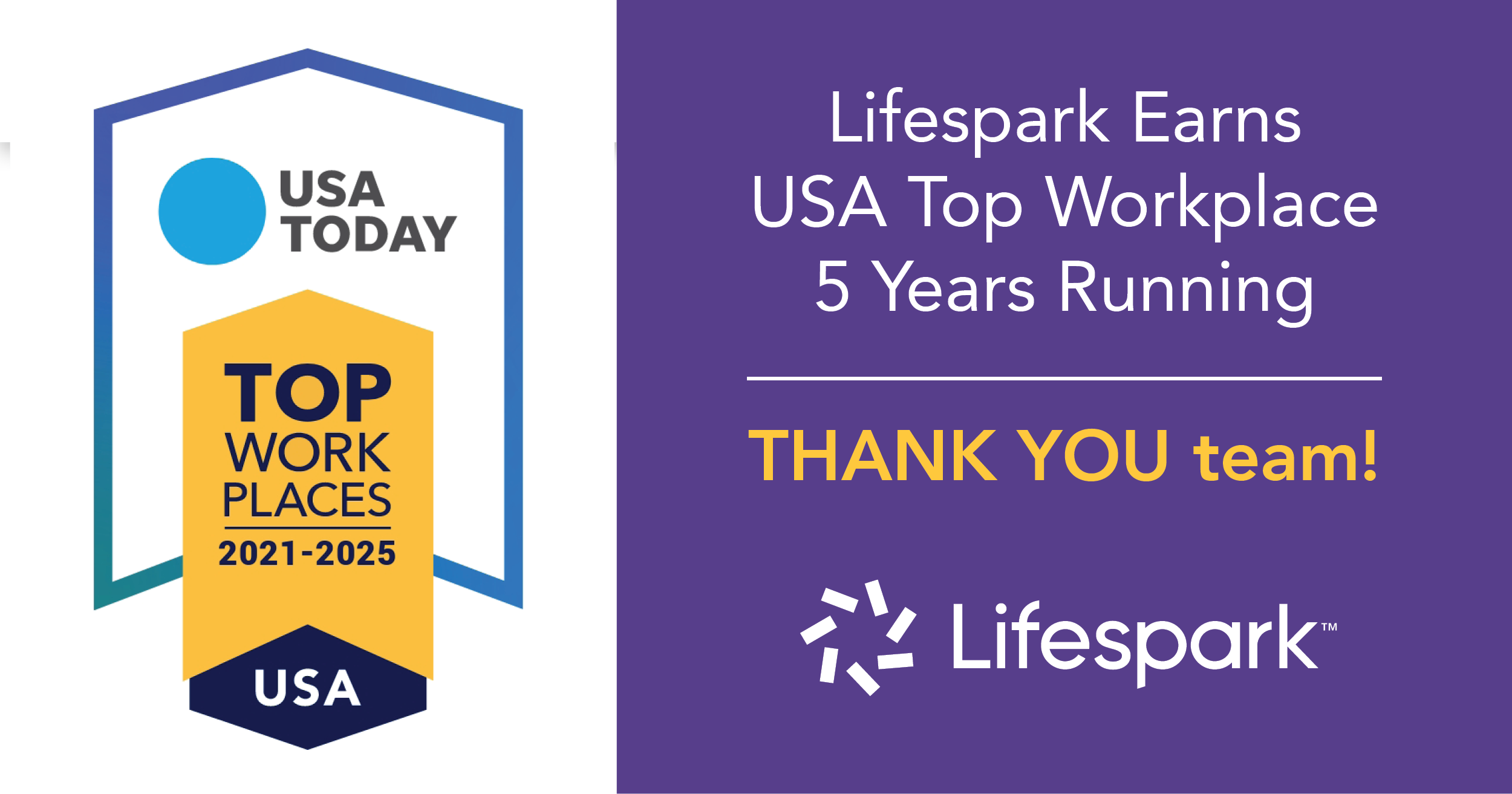
We All Own the Culture We Create
Only 33.4% of Americans are engaged at work according to a daily Gallup Poll. That’s a statistic Lifespark seeks to beat every day, scoring 70% on their engagement scores according to research conducted by Quantum Workplace. Employee engagement is one of the main reasons Lifespark has once again been named a Star Tribune Top 150 Workplace for the 5th time in six years.
How is it possible to create a place where employees are excited to come to work and contribute to the mission? And why does it matter? The secret according to Joel Theisen, RN, CEO/Founder for Lifespark, is to own your own culture.
As he sees it, it’s up to each employee to create the kind of culture we want where we work through honest intentions, open, transparent communications from the top down and a strong belief in the company’s mission.
But it’s also something bigger than that. Joel believes culture isn’t just a product of a good company strategy, it is the strategy. “We believe in investing in employees-for-life,” he explains. “Everything starts with hiring the right people whose values and belief systems are aligned with our company philosophy. They aren’t employees but investors and deliverers of our mission. We are in this together – when our team feels satisfied, motivated and supported at work, they will feel compelled to do whatever it takes to seek the spark for their clients because they feel it for themselves.”
This thought process is in line with what Gretchen Rubin, a New York Times bestselling author of the Happiness Project, found after she spent a year studying how people can be happier in both work and life. What she discovered was that happy employees are more productive, creative, better leaders and team players.
For Lifespark employees, there are many reasons that contribute to their engagement at work: One noted that “our staff believes in the work they do. We have a motivating and positive CEO with a great mission for helping the community.” Another employee said, “I was instantly motivated because for the first time ever, I am part of a team that feels the same way I do about bettering healthcare for seniors.” And for many others, it was about the meaningful work they do that inspires them to create change: “We do important, meaningful work that offers its employees the chance to achieve any level they aspire to. The company’s investment in culture is a compelling draw.”
“Earning the Top 150 award has never meant so much,” said Joel. “It’s been a tremendous year of growth for Lifespark with the addition of a whole new home health division. We are so proud of our team for maintaining a strong culture amid these challenges.”
What can you do as a company to promote a strong culture? As Joel points out – give your employees the room to create the culture they desire. Join the conversation – we want to know, are you part of the 30% or 70%? What motivates you at work and does a strong culture matter to you?





